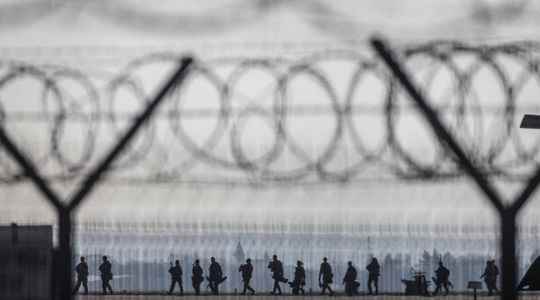The announcement of an exchange of prisoners between the United States and Russia is an event all in images, those of two men passing each other in the middle of the night on a bridge, in an atmosphere of extreme tension, the gaze of each fixed in the distance, on the vehicle symbol of a freedom soon to be regained.
This imagined scene, partly born from Steven Spielberg’s film The Bridge of Spies, narrating the exchange between the American spy pilot Francis Gary Powers and the KGB colonel Rudolf Abel, was able to find an equivalence in the exchange of soldiers carried out between the two countries this Wednesday April 27, even if the tarmac of a Turkish airport replaced the famous German Glienicke bridge. Very few images have leaked, but the father of Trevor Reed, the American prisoner, told CNN television that the exchange was very scripted, with the two prisoners “going through at the same time, like in the movies” .
Negotiations carried out “for a long time”
The former marine was sentenced in July 2020 to nine years in prison for assaulting two police officers while intoxicated at a party in Moscow. He has always denied the facts and denounced a “political” affair. For his part, Konstantin Yaroshenko was arrested by the American secret services in May 2010 in Liberia and sentenced to twenty years in prison for drug trafficking.
In negotiation “for a very long time”, according to the lawyer for the KGB agent, and discussed at length during a meeting between Biden and Putin in Geneva in June 2021, this exchange is far from being an exception. “In the worst moments of the Cold War, there were exchanges of prisoners”, explains Alain Bauer, professor at the National Conservatory of Arts and Crafts. “Only, most of the exchanges take place without communication,” he adds.
In July 2010, the largest prisoner exchange since the end of the Cold War took place in Vienna. Ten Russian agents detained in the United States were then exchanged for four Russian spies working for the Americans. If this Wednesday’s operation therefore seems trivial, Joe Biden nevertheless insisted on the “difficult decisions” that had to be made to free Trevor Reed.
“The proof that the red telephone exists”
This cooperation comes at the worst of relations between the two countries since the Cold War, but it should not be seen as the premises of an appeasement. “This will have no impact on the continuation of the conflict in Ukraine,” said Alain Bauer. “It’s just an atmospheric signal, postcard diplomacy, proof that the red telephone exists.”
An American official, on condition of anonymity, even felt obliged to specify that this event did not represent “in any way a change in the way of looking at the appalling violence in Ukraine”, the discussions with the Russians being “strictly limited in this regard”. As if to prove it, the American president announced, this Thursday, April 28, that he wanted to strengthen military aid to Ukraine and transfer Russian assets to it.
